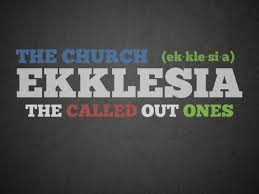When my children were little, I thought it would be fun to be an assistant soccer coach. I signed up to be an assistant. I quickly found out, however, I would not be the assistant coach, but the coach. I didn’t grow up playing soccer and had to become a quick study on the rules of the game. I rented videos and studied guides from the library. I also took a soccer reffing class in order to learn the rules more thoroughly.
My children are now well past their youth soccer years, but I continue to officiate games. I really enjoy the sport; however, I am saddened by the explosive anger and frustration often expressed by parents and coaches because of the official’s call.
Anger, in all its forms, is a problem on the field, in the home and everywhere in between—including the church. It’s a problem for all of us.
Jesus said, “You have heard that the ancients were told, ‘You shall not commit murder’ and ‘Whoever commits murder shall be liable to the court.’ 22 But I say to you that everyone who is angry with his brother shall be guilty before the court; and whoever says to his brother, ‘You good-for-nothing,’ shall be guilty before the supreme court (Matt 5:21-22a).”
Anger in our hearts is murderous. Because we have a desire to have our own way, we’re tempted to play God and to judge and punish people in our hearts.
The anger itself is not necessarily sinful (John 3:36 and Romans 1:18). God gets angry (Exodus 4:14, 15:8). Jesus got angry (Mark 3:5; Matthew 21:12). The apostle Paul tells us to be angry yet do not sin (Eph. 4:26). However, righteous anger is rare. Biblical anger is anger when a real sin has taken place (1 Sam. 11), your concern is for God’s kingdom and not your own (John 2:13-17) and when you express that anger righteously (Romans 12:17-21).
Anger is deceptive and dangerous. It can so quickly get out of control. Often we become angry because we want something too much (James 4:1-4)—that’s idolatry.
The only ability we have to overcome anger is by God’s grace. Managing anger by just keeping it at bay is not a permanent solution. It does not deal with the root issue of the problem. This problem is only overcome when the heart issue is addressed and that is only possible with gospel truth (Philippians 4:8-9, Proverbs 4:23).
So, here are five biblical truths to tell yourself when you are getting angry: (1) I want something too much (Romans 1:25); (2) I am not the Judge (Gen. 50:19); (3) God has been very gracious to me in Christ (Eph. 4:31-32); (4) God is in control and will not give me more than I can bear (I Cor. 10:13); and (5) I need to remember who I am—a new creature in Christ (Romans 6:11).
It is only as we trust our Creator and His provision can we deal with the root of our anger and be at peace.




